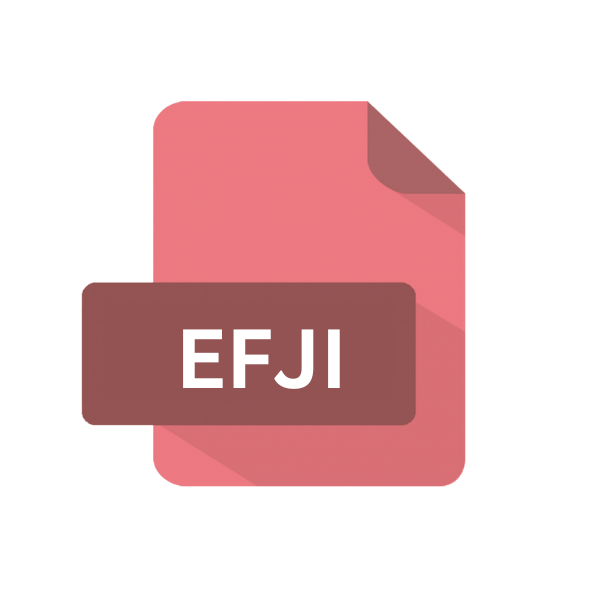.EFJI File Extension

EFJI Ransomware Encrypted File
| Developer | N/A |
| Popularity | |
| Category | Encoded Files |
| Format | .EFJI |
| Cross Platform | Update Soon |
What is an EFJI file?
In the realm of cybersecurity threats, ransomware stands out as one of the most insidious and damaging. Among its various iterations, EFJI ransomware has emerged as a particularly nefarious strain, wreaking havoc on the digital landscape by encrypting files with the .EFJI extension.
This article delves into the origin, history, technical specifications, and implications of EFJI encrypted files, along with methods for accessing and mitigating their impact.
More Information.
The history of EFJI ransomware traces back to the broader landscape of ransomware attacks, which have been plaguing individuals, businesses, and organizations for years.
Initially, ransomware was primarily a tool for cybercriminals to extort money from victims by encrypting their files and demanding payment for decryption keys.
With advancements in encryption techniques and the proliferation of cryptocurrencies like Bitcoin, ransomware attacks became more sophisticated and profitable.
EFJI ransomware, like its predecessors, was crafted with the sole purpose of monetary gain for its creators. By encrypting files on infected systems and displaying ransom notes demanding payment in cryptocurrency, EFJI aimed to coerce victims into paying for the decryption keys needed to regain access to their data.
Origin Of This File.
EFJI files are a direct consequence of EFJI ransomware, malicious software designed to infiltrate computer systems, encrypt files, and demand ransom for their decryption.
The perpetrators behind EFJI ransomware typically distribute it through phishing emails, malicious links, or exploit kits, exploiting vulnerabilities in outdated software or operating systems.
File Structure Technical Specification.
The .EFJI file extension signifies that a file has been encrypted by EFJI ransomware. The encryption process employed by EFJI typically uses strong cryptographic algorithms such as AES or RSA, making decryption without the corresponding key virtually impossible.
Each encrypted file is appended with the .EFJI extension, indicating that it is no longer accessible without decryption.
Technical specifications of EFJI encrypted files include the use of unique encryption keys generated by the ransomware, rendering decryption without the involvement of the attackers exceedingly difficult.
The ransom note accompanying EFJI encrypted files usually provides instructions on how victims can contact the perpetrators and arrange for payment in exchange for the decryption key.
How to Convert the File?
Converting EFJI encrypted files back to their original, unencrypted state is typically not feasible without the decryption key, as the encryption employed by EFJI ransomware is designed to be strong and virtually unbreakable. Here are some steps that victims can take to attempt to recover their files:
1. Restore from Backup:
- If you have a backup of your files that was created before they were encrypted by EFJI ransomware, restoring from that backup is the most reliable method of recovering your data.
- Utilize built-in backup solutions like Windows Backup, macOS Time Machine, or third-party backup software to restore files from a previously saved backup.
2. Consult with Cybersecurity Experts:
- Reach out to reputable cybersecurity professionals or companies that specialize in ransomware recovery and decryption services.
- They may have experience dealing with EFJI ransomware and could potentially assist in decrypting your files or providing alternative recovery solutions.
3. Explore Decryption Tools:
- While decrypting EFJI encrypted files without the decryption key is highly unlikely, occasionally security researchers develop decryption tools that may be able to unlock certain ransomware strains.
- Keep an eye on reputable cybersecurity websites and forums for any updates or developments regarding EFJI ransomware decryption tools.
4. Avoid Paying the Ransom:
- It’s important to note that paying the ransom demanded by EFJI ransomware attackers is not recommended, as it does not guarantee that you will receive a working decryption key.
- Furthermore, paying the ransom only fuels further criminal activity and encourages the proliferation of ransomware attacks.
5. Preventive Measures:
- Implement robust cybersecurity measures to prevent future ransomware attacks, such as installing reputable antivirus software, keeping your operating system and software up to date, and educating yourself and your employees about cybersecurity best practices.
- Regularly back up your important files to an external storage device or a secure cloud service, ensuring that you can recover your data in the event of a ransomware attack.
Advantages And Disadvantages.
Advantage:
- Profitability: EFJI ransomware offers cybercriminals a lucrative revenue stream through ransom payments, facilitated by the encryption of valuable files. The potential for financial gain incentivizes attackers to continue developing and distributing such malware.
- Anonymity: Cryptocurrencies like Bitcoin enable anonymous transactions, allowing perpetrators of EFJI ransomware to receive payments without revealing their identities. This anonymity makes it challenging for law enforcement agencies to trace and apprehend cybercriminals, contributing to the persistence of ransomware attacks.
- Efficiency: EFJI ransomware employs sophisticated encryption algorithms that efficiently render files inaccessible without the decryption key. This efficiency maximizes the impact of the attack, compelling victims to consider paying the ransom to regain access to their encrypted data.
Disadvantage:
- Financial Loss: Victims of EFJI ransomware often suffer significant financial losses due to the extortionate demands for ransom payments. Even if the ransom is paid, there is no guarantee that the attackers will provide a working decryption key, leading to further financial losses and uncertainty.
- Data Integrity Concerns: The encryption process used by EFJI ransomware may result in data corruption or loss, especially if decryption attempts are unsuccessful or incomplete. This compromises the integrity of the encrypted files and may render them permanently inaccessible or unusable.
How to Open EFJI?
Open In Windows
- Attempt to restore files from backup using built-in Windows backup and recovery tools.
- Consult cybersecurity experts or utilize specialized decryption tools if available.
Open In Linux
- Use Linux-compatible data recovery or decryption tools to attempt file restoration.
- Explore third-party solutions or seek assistance from cybersecurity professionals experienced in Linux systems.
Open In MAC
- Utilize Time Machine or other backup solutions integrated into macOS to restore files.
- Consider employing third-party data recovery software designed for macOS systems.
Open In Android
- Connect the Android device to a computer and attempt to access files using file recovery or decryption software.
- Consult with cybersecurity experts familiar with Android systems for guidance on accessing and recovering encrypted files.
Open In IOS
- Restore files from iCloud backup if available.
- Contact Apple Support or consult with cybersecurity professionals specializing in iOS devices for assistance.
Open in Others
For other platforms or specialized systems, consult with cybersecurity experts for tailored guidance on accessing and recovering encrypted files.













